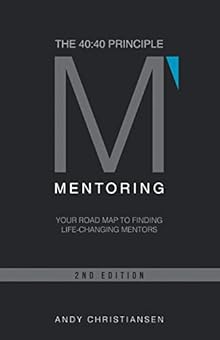Positive Leadership Limited is a strategic leadership and corporate finance advisory firm. We use our considerable experience to provide unique perspectives and innovative solutions which help corporate leaders unlock maximum value from complex business challenges. There is no dress rehearsal for delivering answers to critical business challenges. When you are under intense pressure to succeed, we help deliver the vitally important marginal gains which let your business excel and win.
Sunday, July 31, 2011
Positive Leadership: Leading With The Heart
Saturday, July 30, 2011
Friday, July 29, 2011
Positive Leadership: Five Essentials of Leadership Communication
Positive Leadership: Five Essentials of Leadership Communication
Thursday, July 28, 2011
Positive Leadership: High Potentials
Positive Leadership: High Potentials

Wednesday, July 27, 2011
Positive Leadership: Are You Really Connected or Just Linked?
Positive Leadership: Are You Really Connected or Just Linked?
Tuesday, July 26, 2011
Positive Leadership: Your Most Important 'Relationship'
Positive Leadership: Your Most Important 'Relationship'
Monday, July 25, 2011
Positive Leadership: "What Have I Become Used To?"
Positive Leadership: "What Have I Become Used To?"
Friday, July 22, 2011
Positive Leadership: Are You Focusing on the Wrong Part of Your Business?
Positive Leadership: Are You Focusing on the Wrong Part of Your Business?
Thursday, July 21, 2011
Positive Leadership: Adversity is an Opportunity
Positive Leadership: Adversity is an Opportunity

Wednesday, July 20, 2011
Positive Leadership: Being Your 'Best' Self
Positive Leadership: Being Your 'Best' Self

Tuesday, July 19, 2011
Positive Leadership: Efficient v Effective
Positive Leadership: Efficient v Effective
Monday, July 18, 2011
Positive Leadership: Lessons from Harry Potter
Positive Leadership: Lessons from Harry Potter

Saturday, July 16, 2011
Positive Leadership: Be Yourself
Positive Leadership: Be Yourself
Friday, July 15, 2011
Positive Leadership: Celebrate!
Positive Leadership: Celebrate!
Thursday, July 14, 2011
Positive Leadership: Thinking Like A Champion
Positive Leadership: Thinking Like A Champion
Wednesday, July 13, 2011
Positive Leadership: Bouncing Back
Positive Leadership: Bouncing Back
Tuesday, July 12, 2011
Positive Leadership: Why Leaders Must Have A Positive Attitude
Positive Leadership: Why Leaders Must Have A Positive Attitude
Monday, July 11, 2011
Positive Leadership: The Importance of Team IQ
Positive Leadership: The Importance of Team IQ
Sunday, July 10, 2011
Positive Leadership: How to deal with people who think they are performing in an acceptable manner
- The goal of feedback is to help employees succeed by reinforcing effective performance and redirecting ineffective performance.
- Feedback should be based on specific, observable, and verifiable data and information.
- Feedback should be given as close to the occurrence as possible.
- Feedback should be a two-way process. Be sure to solicit the employee’s input on why his or her performance is good … or lacking.
- Feedback should include a discussion of the potential impact of continued good or deficient performance.
- Feedback should never include threats or promises.
Positive Leadership: How to deal with people who think they are performing in an acceptable manner
Saturday, July 09, 2011
Positive Leadership: From Values to Action
Positive Leadership: From Values to Action

Friday, July 08, 2011
Positive Leadership: Dealing with Adversity
Positive Leadership: Dealing with Adversity

Thursday, July 07, 2011
Positive Leadership: Do Their Eyes Shine?
Positive Leadership: Do Their Eyes Shine?

Wednesday, July 06, 2011
Positive Leadership: How to Lead From a Distance
- Keep a written list of all agreements/promises/commitments you make, check it frequently.
- Ask your people to tell you one thing you can do to be more reliable in their eyes – then DO IT!
- Be available to support and respond to team members. When not available, follow up as soon as possible.
Positive Leadership: How to Lead From a Distance
Tuesday, July 05, 2011
Positive Leadership: Endurance on the Field and at Work
Positive Leadership: Endurance on the Field and at Work

Monday, July 04, 2011
Sunday, July 03, 2011
Saturday, July 02, 2011
Positive Leadership: Ethical Leadership
- Is it legal?
- Does it comply with our rules and guidelines?
- Is it in sync with our organisational values?
- Will I be comfortable and guilt-free if I do it?
- Does it match our stated commitments and guarantees?
- Would I do it to my family or friends?
- Would I be perfectly okay with someone doing it to me?
- Would the most ethical person I know do it?
Positive Leadership: Ethical Leadership























